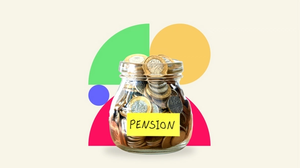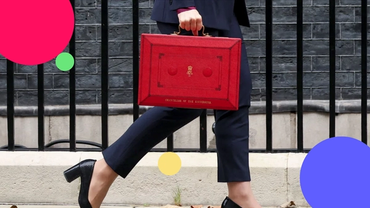Autumn Budget 2025: What May Be Coming and Your Action Plan
24 Feb, 2025
Budget rumour season kicked off in earnest, with speculation covering everything from Inheritance Tax and council tax to pension tax-free cash, Stamp Duty, Capital Gains Tax, and National Insurance on property income. The field of potential changes makes navigating your financial planning feel like picking winners at the Grand National!

Let's cut through the noise and focus on the smart moves that'll keep more money in your pocket – whatever changes come.
Your no-regrets action plan
Rather than panic or freeze with indecision, there are smart steps you can take that will benefit your finances regardless of what actually makes it into the Budget. Here's your comprehensive action plan:
1. Get your ISAs sorted (the no-brainer starting point)
I think of a Stocks & Shares ISA like a safe that the taxman can’t get his grubby mitts on! You can conceptually make gazillions of profit on stocks and shares held within an ISA and pay not a penny of tax. These accounts are the no-brainer starting accounts for investors to use.
No need to procrastinate – you can open most of them with £100 or less. Our coveted Best Buy ISA award will help you to pick a good ‘un.
With Capital Gains Tax (CGT) allowances now slashed to just £3,000 (basic rate taxpayers pay 18% on gains above this, higher rate taxpayers pay 24%), ISAs become even more valuable. With those frozen thresholds dragging more people into higher tax brackets, your personal savings allowance is shrinking faster than a cheap jumper in a hot wash.
2. Transfer investments into your ISA through 'Bed & ISA'
You can stick up to £20,000 into an ISA this tax year. But even if you have no spare cash, could you move any existing shares or funds you own outside an ISA into one?
The answer is yes, and this process is given the ridiculous name of 'Bed & ISA' by the investing industry.
For example, if you have £40,000 in shares which are NOT currently in an ISA, you could sell half at the end of March, move the £20,000 in cash into the ISA and then buy the shares back. And repeat after 5th April with the remaining £20,000. So you now have those investments in the 'tax safe' and you won't rack up a tax bill on any gains.
How Bed & ISA works:
Sell investments outside your ISA (up to £20,000 worth)
Repurchase the same assets within your ISA allowance
Future gains are now protected from Capital Gains Tax!
NB. But don't get caught out with timing! Remember it usually takes 2 working days to get your hands on the cash from selling shares, and 4 days from funds, so don't leave it until the very last days of the tax year.
3. Smart Capital Gains Tax management
With CGT allowances now less than half of what they used to be just a few years ago, smart timing becomes crucial. Think of it as strategic planning where you're making the most of the rules as they stand.
4. Capital Gains Tax strategies for couples
Interspousal transfers – between married people or those in a civil partnership – can also be your friend. As a duo, you have £6,000 of tax-free gains per year. Who knew that Jennifer Rush was thinking about Capital Gains Tax when she wrote The Power Of Love?!
You can give each other stuff out of the kindness of your tax-mitigating heart. "Hello darling, here is a present of 500 Unilever shares as a token of my undying love for you. Now could you sell them please and realise the gains in your name, not mine?"
This wheeze is also good if one of you is a lower-rate taxpayer. You want the lower-rate taxpayer to make all the gains because they have a larger allowance before tax kicks in. However, before doing this, it's good just to sense-check that they don’t hate you and are not planning to run away and ‘find themselves’ in a luxury resort in the Caribbean for 6 months - because they will own the asset!
5. Savings strategy for frozen thresholds
With personal tax thresholds frozen until 2028 (and potentially beyond), more people are being drawn into paying tax on their savings interest. In fact, HMRC data shows that in the 2024-25 tax year, there were an estimated 37.4 million people paying Income Tax - up from 33 million when the threshold was frozen in 2021-22.[1]
6. Pension moves (before they pull the rug out)
If you're a higher or additional-rate taxpayer, listen up. There's chatter about flattening pension tax relief, which could see your lovely 40% or 45% relief turn into the usual 20% (or maybe 25%). Time to strike while the iron's hot.
If you are a higher or additional-rate taxpayer, you were planning to pay more into your pension in the current tax year, and you are worried about changes to the pension tax relief regime, it’s a good idea to make the most of the system as it currently stands by making a contribution to your pension in the coming weeks. This means you can benefit from the higher rates of relief on offer.
7. Family money moves (getting the kids involved)
With Inheritance Tax changes potentially lurking in the shadows, now's a great time to get creative with family wealth transfers.
If you are a very well-off (or well-organised) parent, you can also use the point above to fill up on Junior ISAs too. The idyllic family of 4 - last seen in 1980s advertising - could have up to £20,000 in an ISA each for Mum and Dad, and £9,000 each for little Johnny and Jemima. Just don't tell Johnny and Jemima, because they will own the assets when they turn 18 and you don't want them to drop out, grow dreadlocks and go and live in a treehouse in Ko Phangan!"
8. When to seek professional guidance
With so many different tax changes being floated over recent weeks, taxpayers can be forgiven for feeling confused and concerned about what the chancellor has in store.
If you have significant assets and are concerned about potential Inheritance Tax changes, this could be an appropriate time to consider professional financial advice.
If you're worried about the best approach, and don't know how much you can afford to give away, this is one of the times in life where getting financial advice can offer real peace of mind. Advisers can help you understand all your assets, and how much of them you will need during your lifetime.
The bottom line
Here's the thing – don't let all this budget speculation send you into a tailspin. The secret is focusing on moves that make perfect sense whether the Chancellor throws us a curveball or not. Max out those ISAs, manage CGT smartly, and get your pension contributions sorted while the going's good.
These aren't just defensive moves – they're sensible wealth-building strategies.
---








